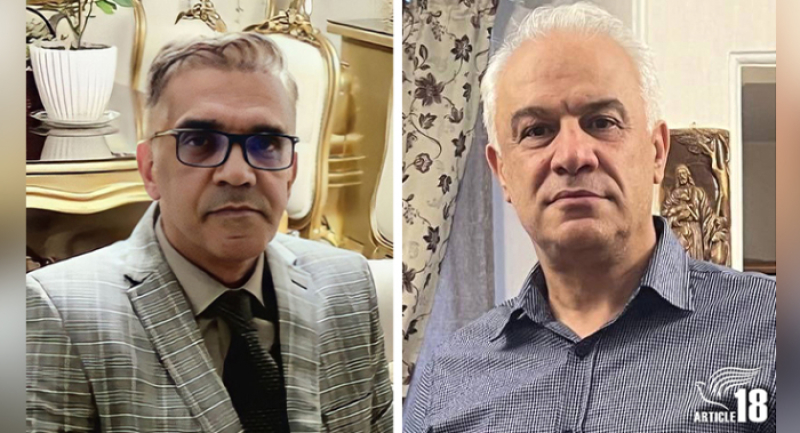
Two Christians who were previously released from prison in Iran were re-arrested last Thursday, according to advocacy group Article 18.
Intelligence agents took Nasser Navard Gol-Tapeh and Joseph Shahbazian from their homes in Tehran province and returned them to Tehran's notorious Evin Prison, along with other Christians detained for their faith.
Gol-Tapeh, 63, a convert from Islam, had been “pardoned” and released in October 2022 after serving nearly five years of a ten-year sentence on charges labeled as “actions against national security” due to his involvement in a house church.
Article 18 reported that “Nasser is apparently refusing to eat in protest at his unlawful re-arrest,” while sources indicated that several other Christians in Tehran were also detained around the same time.
Shahbazian, a 60-year-old Iranian-Armenian, had spent just over a year at Evin Prison on similar charges before being “pardoned” and freed in September 2023. Article 18 stated, “Indeed, as Article 18’s new annual report shows, any Christians considered ‘unaligned’ with the goals of the Islamic Republic can face arrest and imprisonment on ‘security’ charges.”
The reasons behind the re-arrests of Gol-Tapeh and Shahbazian remain unclear. Throughout his five years in prison, Gol-Tapeh submitted several requests for a retrial or parole and wrote numerous open letters questioning how participation in a house church could be considered an action against national security.
His release occurred two days after a fire caused chaos at the prison, resulting in at least four prisoner fatalities and triggering gunfire and projectiles being hurled into the facility from outside.
Following Gol-Tapeh’s release in 2022, Article 18 Director Mansour Borji stated, “Nasser was arbitrarily arrested and detained, falsely charged, unjustly imprisoned for almost five years, and inhumanely refused a chance for retrial, furlough, and medical attention.”
Shahbazian originally received a ten-year sentence for hosting church services in his home, which was later reduced to two years in May 2023. Article 18 reported that he was denied medical treatment for an illness for several months and was not informed of his diagnosis, even after receiving it.
Shahbazian opted not to apply for conditional release, as it would have required him to pledge not to engage in the activities for which he was arrested — organizing and hosting house church meetings with Christian converts. Meanwhile, the closure of churches has increased private worship gatherings in homes like Shahbazian's.
“Iranians from Armenian and Assyrian families are permitted a degree of freedom to worship — in their own languages — but churches that offered services in the Persian language have been systematically closed over the past 15 years. Consequently, Iranians wishing to worship in Persian, whether converts or members of the Armenian and Assyrian communities, have no places to gather for worship,” Article 18 stated.



















